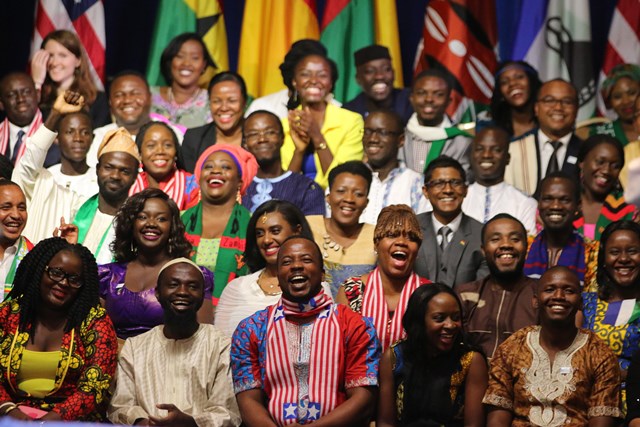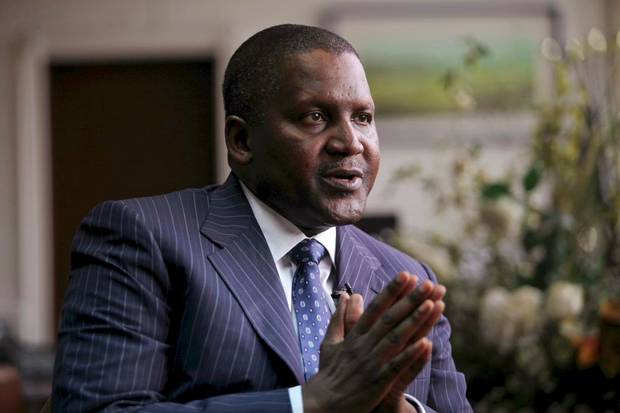
Photo Credit (YALI)
By Martin Roche, Writer at Large
As the 20th century gave way to the 21st the leadership of the great Western powers was firmly in the hands of younger leaders. Tony Blair was 43 when the door of 10 Downing Street opened to him. Bill Clinton 46 and George W Bush a relatively youthful 54 when each won the keys to the White House. Barack Obama was just 47. Francoise Hollande arrived at the Elyse Palace in 2012 aged 54 and Angela Merkel 53 when first becoming Germany’s Chancellor in 2005.
The reign of the young took a sharp reversal in 2017 when Donald Trump became the oldest person to become US president, aged 70. In the UK, Theresa May arrived at No10 Downing Street aged 59, nearly ten years older than her immediate predecessor, David Cameron.
There is some logic in these older people leading their nations now. In the United States, 53% of people aged 65 and over voted for Mr Trump. In the UK’s referendum on EU membership, 64% of people aged over 65 voted to leave. Mrs May came to power when her predecessor, David Cameron, resigned after his referendum defeat. Both nations are also following the pattern set in almost all Western nations of seeing a huge rise in the older population, as health care and affluence extend life expectancy. At the same time, younger people are having fewer children and indeed more young people are choosing to live alone and often not seeking a life partner until in their 30s.
70% under 35
All this thinking about the age of political leaders came to me as I read an article by the British political activist, Harriet Shone. Her piece reminded me that Africa is a continent of the young. 70% of people are under 35, yet Africa’s leaders are on average 10 to 20 years older than most of their counterparts in the West. Why this is so need not bother us here. The fact is that old age has an unavoidable termination
Modern Africa, which in so many places is becoming more stable, more dynamic, more affluent and more self-confident needs to think about nurturing new generations of leaders. Leaders born of the internet age. Leaders for whom the end of the colonial age was moulded by their grandfathers and great-grandfathers. Leaders with levels of education higher than any African generation ever. Leaders who understand the heartbeat of their own generation.
Support and guidance for the young
But political leadership is a hard road, of hard lessons. In politics, just like any other profession, the young need the support and guidance of the old and, eventually, to take their place at the top tables of public life.
Shone, who heads the international office of the UK’s Liberal Democratic party, says that her party sponsors the African Liberal Network (ALN) which has grown to be the largest political affiliation group on the African continent and the second largest network of liberal parties in the world. 47 parties from across Africa make up today’s ALN. Now the ALN has elected its first youth committee. At a recent meeting in Nairobi, six of the committee’s members met for a three-day workshop to map out their first year’s activity, including digital and mainstream communications to establish their presence, attract new activists and, as Harriet Shone says, “Shine a light on the major challenges facing Africa’s young people.”
Liberal revival
Those who follow Western and UK politics know that recent times – the arrival of Donald Trump in the White House and the Brexit vote – hurt the confidence of the liberal Left. In the UK, the 2015 general election saw the Liberal Democrats lose 49 Westminster seats, leaving it with just 8. But the British decision to leave the UK has seen an enormous rise in the party’s fortunes and popularity. Since the referendum in June last year it has doubled its membership to 100,000 people. It has won another seat at Westminster and almost every day sweeps up new seats in local authorities across Britain. There appears to be a revival of liberalism in Britain.
In The Netherlands, parties of the liberal centre helped defeat the far Right, and virulently anti-Muslim, Geert Wilders, in the recent parliamentary elections. In France, an informal alliance of liberals and moderates of the Right and Left seem to be coalescing around the middle-ground presidential candidate, Emmanuel Macron. It is this coalition that currently stands the best chance of beating Marine Le Pen, who leads France’s biggest far-Right party, the National Front. All the polls presently say that Le Pen and Macron will be the runners in the final vote for the French presidency on 7th May.
Important implications
Whoever wins the French presidency, the result will have important implications for Francophone Africa. Vital issues affecting trade, security, immigration, international development and inward investment will rest on whether France elects a far-Right leader or a man of the centre ground, a man of liberal instincts.
A Le Pen win would further weaken the EU and strike perhaps a fatal blow to the future of the European Union itself. France is, with Germany, one of the two great pillars that hold up the EU. The Franco-German alliance has been central to European stability and prosperity for 60 years. What happens to the EU matters to Africa. What happens to the EU and in Africa matters to liberalism. If the EU remains strong following the French elections and maintains its unity through the very difficult negotiations it faces with the UK, it will realise that it needs significant reforms.
Among those reforms should be more favourable trade relations with Africa, more encouragement for EU firms to invest in Africa and easier routes for African businesses to break into EU markets. Liberal Europe and liberal Africa could be an alliance of real and lasting mutual benefit.


